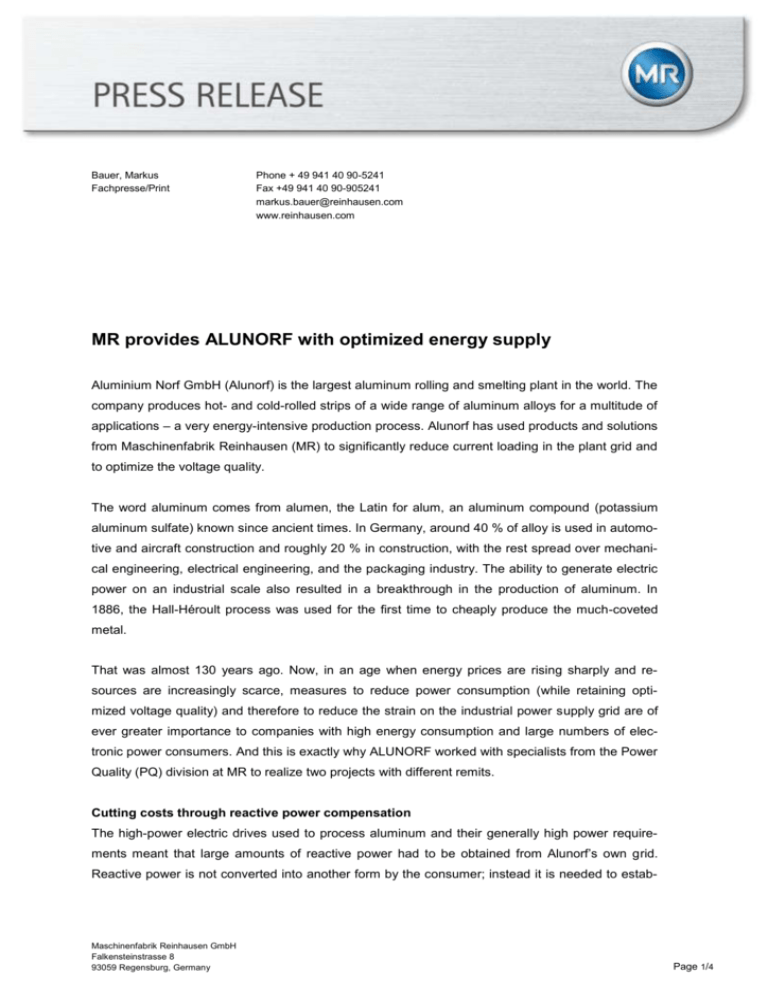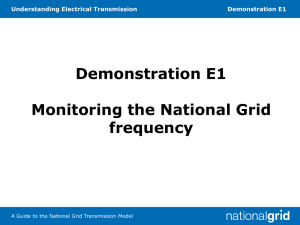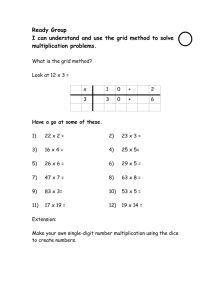Article as word-file with caption
advertisement

Bauer, Markus Fachpresse/Print Phone + 49 941 40 90-5241 Fax +49 941 40 90-905241 markus.bauer@reinhausen.com www.reinhausen.com MR provides ALUNORF with optimized energy supply Aluminium Norf GmbH (Alunorf) is the largest aluminum rolling and smelting plant in the world. The company produces hot- and cold-rolled strips of a wide range of aluminum alloys for a multitude of applications – a very energy-intensive production process. Alunorf has used products and solutions from Maschinenfabrik Reinhausen (MR) to significantly reduce current loading in the plant grid and to optimize the voltage quality. The word aluminum comes from alumen, the Latin for alum, an aluminum compound (potassium aluminum sulfate) known since ancient times. In Germany, around 40 % of alloy is used in automotive and aircraft construction and roughly 20 % in construction, with the rest spread over mechanical engineering, electrical engineering, and the packaging industry. The ability to generate electric power on an industrial scale also resulted in a breakthrough in the production of aluminum. In 1886, the Hall-Héroult process was used for the first time to cheaply produce the much-coveted metal. That was almost 130 years ago. Now, in an age when energy prices are rising sharply and resources are increasingly scarce, measures to reduce power consumption (while retaining optimized voltage quality) and therefore to reduce the strain on the industrial power supply grid are of ever greater importance to companies with high energy consumption and large numbers of electronic power consumers. And this is exactly why ALUNORF worked with specialists from the Power Quality (PQ) division at MR to realize two projects with different remits. Cutting costs through reactive power compensation The high-power electric drives used to process aluminum and their generally high power requirements meant that large amounts of reactive power had to be obtained from Alunorf’s own grid. Reactive power is not converted into another form by the consumer; instead it is needed to estab- Maschinenfabrik Reinhausen GmbH Falkensteinstrasse 8 93059 Regensburg, Germany Page 1/4 lish magnetic fields before being returned to the grid later on - so it moves continually between consumer and generator. When reactive power demand is high, it is bought from the energy supplier. It also functions as a type of ballast in the grid. The POCOS-S reactive power compensation system, which can be switched in stages, has optimized costs at Alunorf. The compact systems with a modular cabinet design are used in the 6 kV medium voltage grid and consist of 1) five compensation steps with step capacities of 1 x 1000 and 4 x 2000 kvar, each comprising one bank of capacitors in a double star circuit with unbalance protection, filter circuit reactor, and vacuum contactor. 2) four compensation steps with step capacities of 1 x 1000 and 3 x 2000 kvar. The systems are designed to be safe to touch and are regulated in line with the reactive power required using a PLC. The systems' stepped arrangement enables them to adapt ideally to the prevailing load situation. Using compensation systems in plant grids also have a positive effect because transfer losses are minimized and transformer and cable loads are reduced, resulting in longer equipment lives. Reliability of supply with filter circuit system The high-power rolling plants in the plant grid produce what are known as harmonics during the extremely energy-intensive processing stage. These may have a serious impact on the voltage quality. Standard values are exceeded, faults may occur on the rolling plant drives, and this impacts tangibly on the production process. Alunorf has solved this problem with a 30 kV filter circuit system from MR and has thereby achieved optimized and economical power distribution while improving security of production and supply at the same time. In order to best satisfy the customer's requirements, the grid was measured and then calculated using special simulation software adapted to PQ's area of work. Since alterations are planned to the rolling plant drives over the next few years, the filter circuit system had to be designed to suit both the current setup and the future modifications to the drive power converters. Alunorf is making a universal and long-term investment and MR's filter circuits, matched to one another and adapted to the expansion work, complement this perfectly. After commissioning, successful implementation was demonstrated by means of a verification measurement. Fenced into a covered area of 30 x 5 m at Alunorf, the filter circuit system ensures maximum grid quality, protecting equipment and systems. "We are absolutely delighted with the technical implementation of the compensation systems and the assembly work undertaken by MR. The systems fulfill their intended purpose and are also flexibly designed for future plant expansions," says Carsten Poch-Schäfer, operating engineer at Alunorf. Page 2/4 Images: Caption: The POCOS-S reactive power compensation systems, which can be switched in stages, has optimized costs at Alunorf. The compact systems with a modular cabinet design are used in the 6 kV medium voltage grid. Caption: The 30 kV filter circuit system from MR has achieved optimized and economical power distribution while improving reliability of production and supply at the same time. Page 3/4 Maschinenfabrik Reinhausen (MR): Maschinenfabrik Reinhausen GmbH (MR), based in Regensburg, Germany, and its 27 subsidiaries enjoy success in the global niche markets of electrical energy technology. The company, founded in 1868, is mainly family-owned and is now managed by the fifth generation of the family. In the 2013 financial year, 2,800 members of staff produced a turnover in excess of 650 million Euros. Over 50 % of the power consumed around the world is regulated by MR products. For over 17 years, the PQM Power Quality Management® division at MR has been producing harmonic filter and compensation systems which ensure well-functioning low-voltage and mediumvoltage networks the world over. The company's work focuses on reducing harmonics, stabilizing voltage, and compensating for reactive power in public and industrial distribution networks. Aluminium Norf GmbH Aluminium Norf GmbH is a joint venture between Novelis Deutschland GmbH and Hydro Aluminium Rolled Products GmbH. Based in Neuss, the company manufactures 1.5 million tons of semifinished products a year with a 2,200-strong workforce. The aluminum strips produced by Alunorf are used in processing plants owned by Hydro and Novelis and their customers to produce drinks cans and other forms of packaging, offset printing plates, automotive parts, and sheet metal for the construction and transport industries. The Aluminium Norf GmbH site is 577,000 m² in size - the equivalent of 60 soccer fields. An area of 285,000 m² is built on and 212,000 m² are used for rail and road links. Production at Alunorf is split into three areas: aluminum smelting, hot-rolled strips, and cold-rolled strips. Ancillaries and services, such as energy supply, maintenance workshops, and stock management support the production areas. Page 4/4



